Abstract
Pigeons were trained on a zero-delay matching-to-sample procedure during which only three of the four possible stimulus configurations were presented. Subsequently, all birds were exposed to all four configurations as a transfer test. A high degree of negative transfer from the three training configurations was obtained in Experiment 1. The results of Experiment 2 indicated that three-configuration training produced differential position-preference effects. During the transfer test, responding after one sample stimulus was apparently based on position, while responding after the other sample was based on color.
Full text
PDF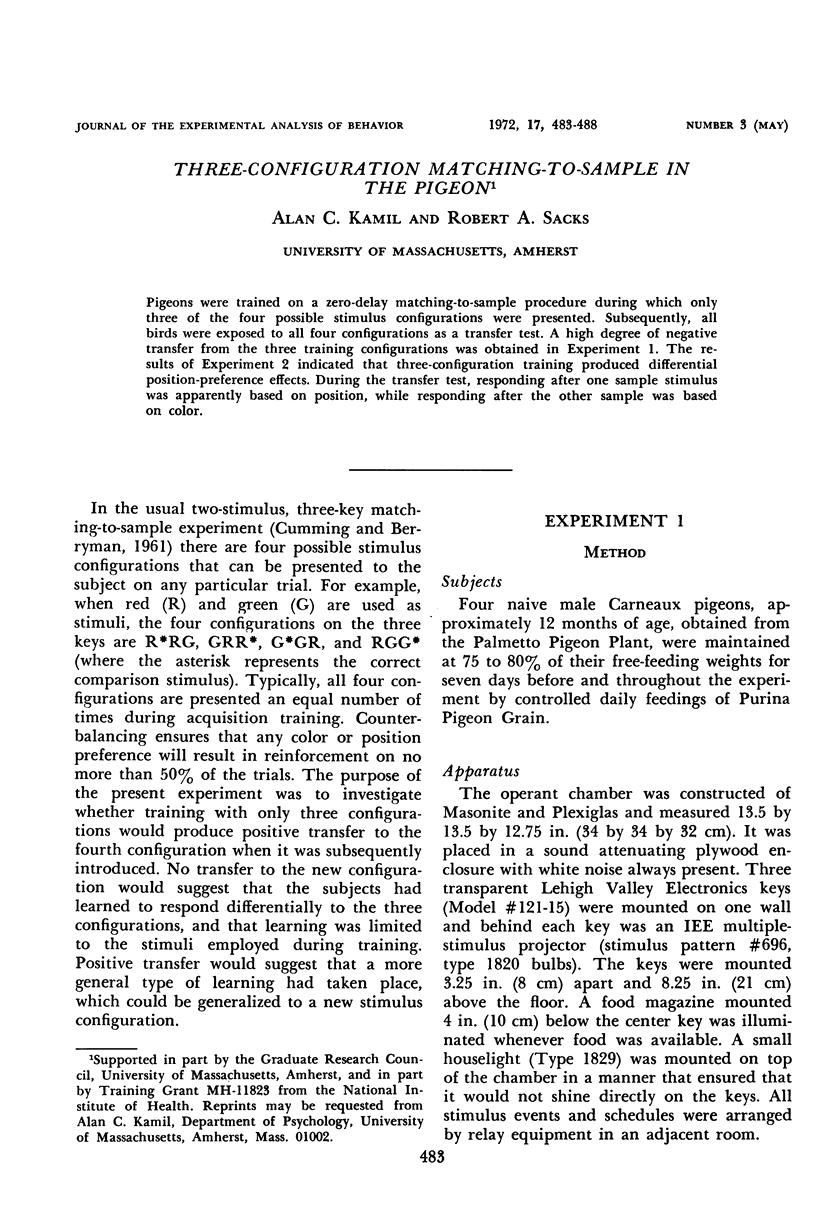
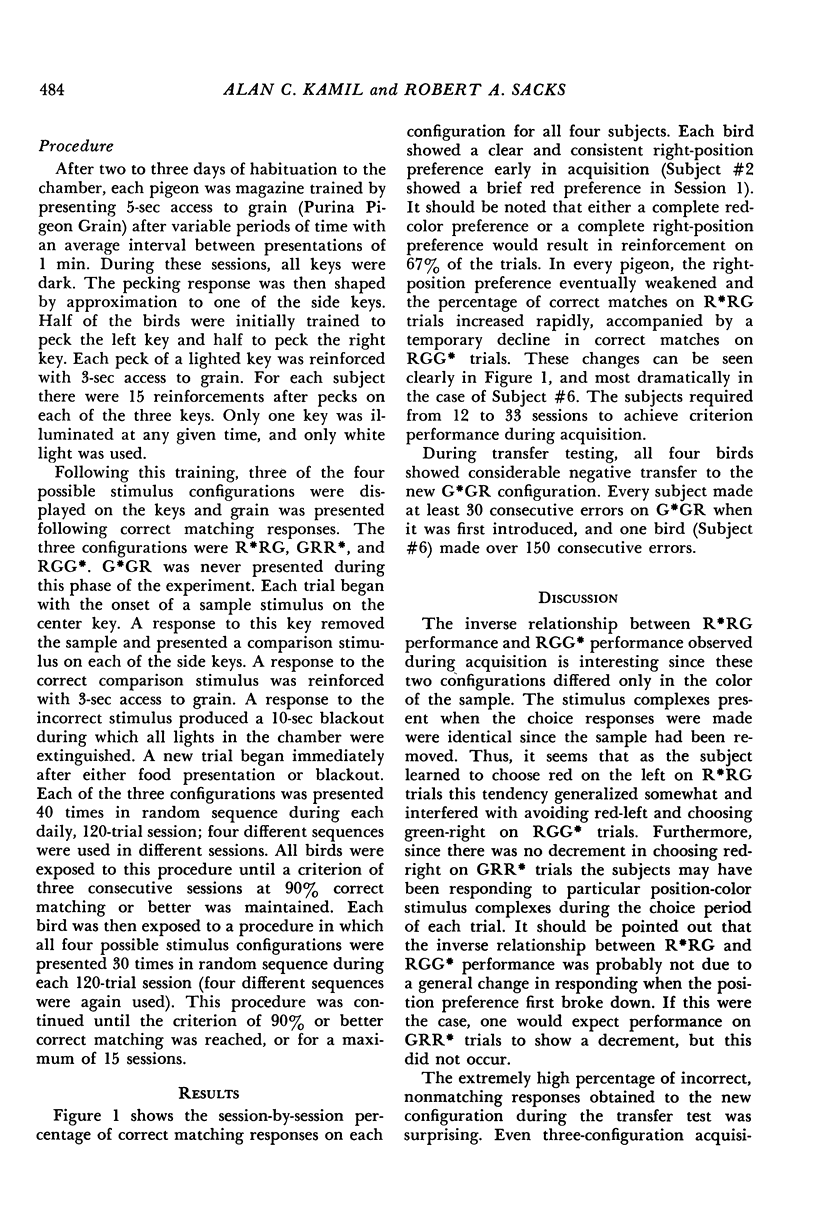
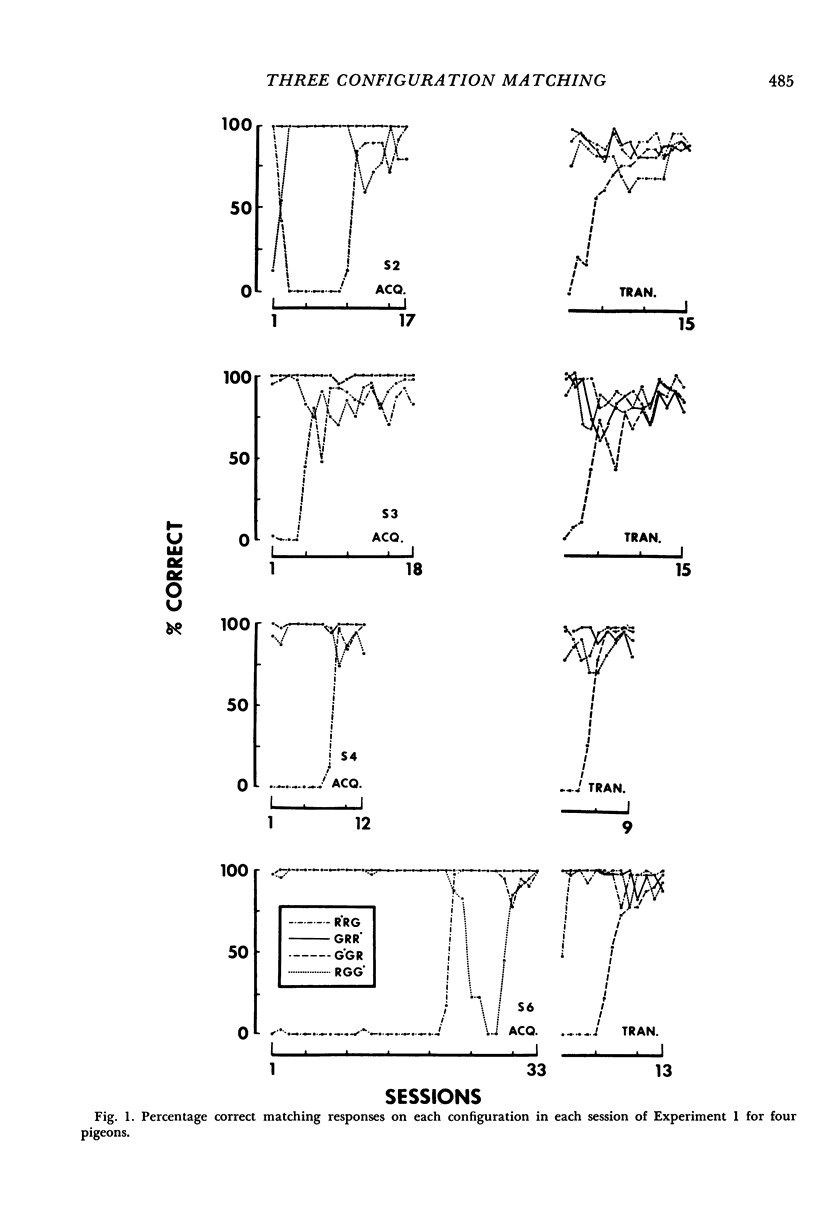
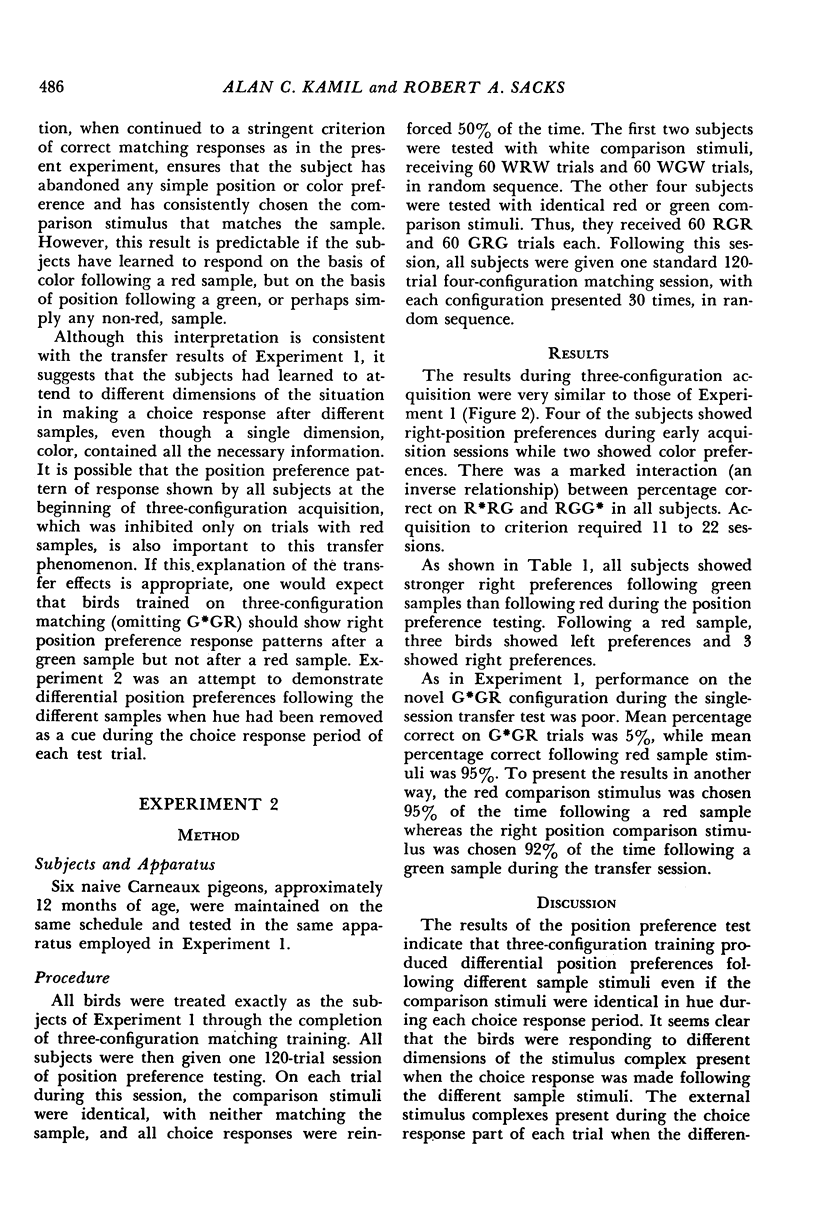
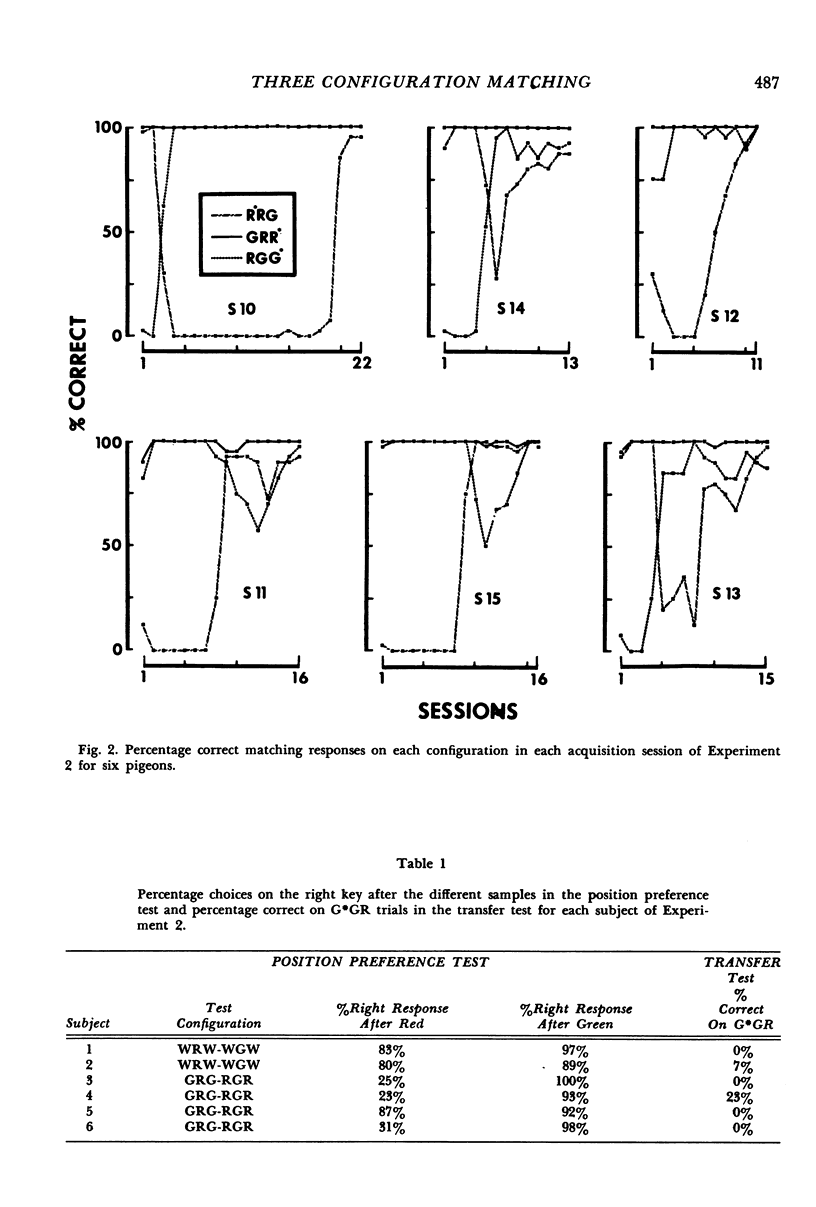
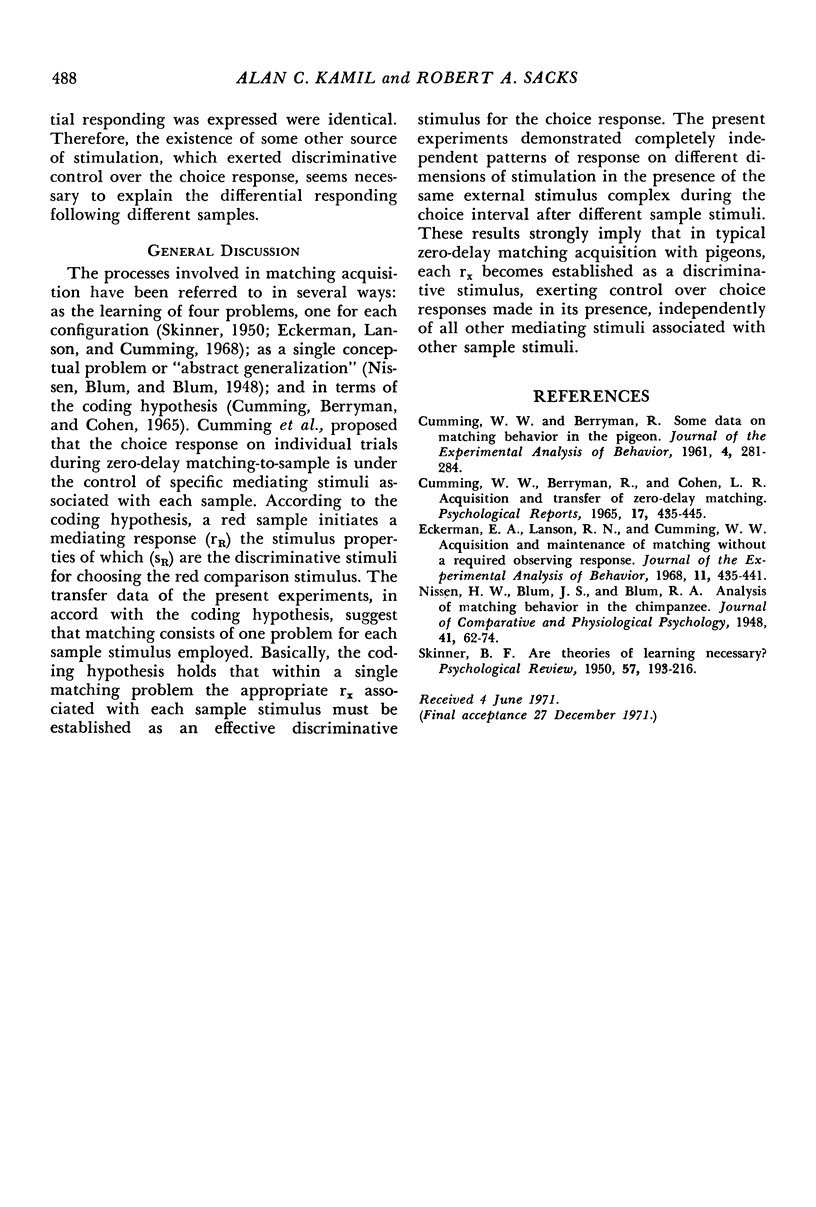
Selected References
These references are in PubMed. This may not be the complete list of references from this article.
- CUMMING W. W., BERRYMAN R. Some data on matching behavior in the pigeon. J Exp Anal Behav. 1961 Jul;4:281–284. doi: 10.1901/jeab.1961.4-281. [DOI] [PMC free article] [PubMed] [Google Scholar]
- Cumming W. W., Berryman R., Cohen L. R. Acquisition and transfer of zero-delay matching. Psychol Rep. 1965 Oct;17(2):435–445. doi: 10.2466/pr0.1965.17.2.435. [DOI] [PubMed] [Google Scholar]
- Eckerman D. A., Lanson R. N., Cumming W. W. Acquisition and maintenance of matching without a required observing response. J Exp Anal Behav. 1968 Jul;11(4):435–441. doi: 10.1901/jeab.1968.11-435. [DOI] [PMC free article] [PubMed] [Google Scholar]
- SKINNER B. F. Are theories of learning necessary? Psychol Rev. 1950 Jul;57(4):193–216. doi: 10.1037/h0054367. [DOI] [PubMed] [Google Scholar]


